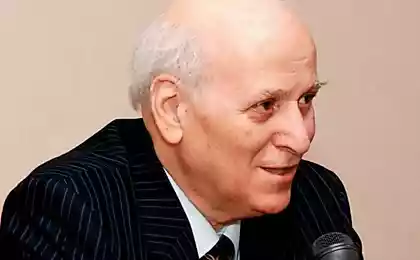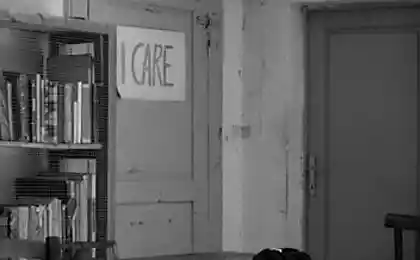223
The Seven Key Principles of Education by Emmy Pickler

Dr. Emmy Pickler lived and fulfilled the mission of her life, working with children in her homeland, Hungary. As a pediatrician, Pickler headed the House of the Child (known as Lozi) in Budapest in 1946.
The House of the Child on Lozi Street and after her death continued to work as the State Methodological Institute, the Center for Training Specialists, and the Research Center. One of the main roles in the continuation of the work of E. Pickler, played by her daughter, teacher and psychologist Anna Tardosh. Today, she heads the Pickler-Lozi Society, which trains specialists in Hungary and abroad, publishes literature and produces films related to the ideas of Emmy Pickler.
Uh. Pickler is a model that the modern world is just beginning to follow. She understood that in order for a child to develop and improve according to the laws of nature, we must take into account the following.
The freedom of movement of a child has a lasting effect on his mental, intellectual and physical state, as well as development. It is important to show respect to children at all times, explaining what causes it. No child needs “help” in their life. But we can patiently support them.
Uh. Pickler said, “We are essentially abstaining from learning certain skills and activities that, under appropriate circumstances, will be developed independently on the initiative of children.”
Principle 1: Full attention, especially when it comes to child care
Many mothers these days are convinced that the simultaneous execution of a large number of tasks is a valuable and essential skill. However, Pickler believed that when we try to do several things at once, it really does not allow us to show respect for our children as well as adults when they demand our full attention. A child who receives one hundred percent of his attention from an adult who communicates with him interprets this as the embodiment of love for him. At the same time, such behavior brings a certain calmness to our lives, torn apart by speed in the pursuit of “productivity”. It is much wiser to allocate time than to share attention.
Principle 2: Speed reduction
In this age of crazy speeds, you and I and our kids will benefit if we slow down a little more often. We inflate ourselves and our children, torn between tasks, jumping from one action to another, creating a fuss and a sense of disorder. Overexcited by a lot of stimuli, children become moody, and their mothers / educators feel stressed. By creating peace around children, we feel relief and peace; this allows children to be in an environment where their “sacred disclosure” takes place with due respect.
Principle 3. Building trust and building relationships while caring for a child
Uh. Pickler was convinced that parents and caregivers need to turn changing diapers, feeding, bathing and dressing a child into “quality” times – leisurely and pleasant, where the child is an active partner. Nature has a choreography of growth, and if we give the child freedom and security, he will learn what he needs at every stage.
Magda Gerber, Emmy Pickler’s student and representative of her philosophy in the United States, wrote: When you approach a child with respect, you tell him what you intend to do and give him an opportunity to respond. You assume that he has the appropriate competence and involve him in the care process, allowing him, as far as possible, to solve his problems on his own. You give him physical freedom and don’t rush his development.
Principle 4. With the child, not in his place.
Creating a partnership with a child means that you interact all the time, adapting to the needs of the child. We often underestimate the child’s desires and abilities. Pickler saw children as active participants rather than passive consumers of care. All of this requires us to talk to our children more about what we want to do to them and be patient, giving them time to respond.
For example: Chloe was the nanny of 12-month-old Angus. His mother said to her, “He’s got a snot today and he hates to wipe his nose, so try your best.” Chloe noticed Angus' mother (gently) deflecting his head back with her left hand while her right hand wipes her nose. It is clear that the boy resists such a “capture”. When Chloe noticed his snot, she took out a handkerchief and held it out on the open hand. She showed her handkerchief to Angus and quietly said, “Angus... you have snot... we need to wipe them together.” And she waited. Angus looked at the handkerchief and then at Chloe. She was still waiting. He looked at the handkerchief again... and then put his little face in it so they could wipe his snot together. Watching a child who is given the opportunity to interact is just wonderful!
Principle 5. We do not give the child a position of the body that he can not take on his own.
The reason for this is that children are trapped and no longer free to move. Children are like prisoners of their bodies. Pickler saw the thousands of positive effects of Free Movement: “By learning to roll over on your tummy, crawl, sit, stand, walk, (a child) not only masters these skills, but learns to master them.” He learns to do things on his own, to be curious, to try and experiment. He learns to overcome difficulties. He recognizes the joy and satisfaction that come with success as the result of his perseverance and patience.
Look at the new-fangled “assistants” of parents in the market of goods that restrict the movements of the child. Strollers, walkers, high chairs, swings, jumpers, hammocks, cribs, arenas and car seats are all the most common devices. Some are legitimate to use (such as a car seat while driving), but many are used for a long time, preventing the child from moving freely. Usually, the use of all these devices is due to the convenience of parents, and not aimed at the development of children.
Principle 6. Don't interrupt the child's play
Emmy Pickler said that parents don’t need to entertain their children: being in a developmental environment and being free to explore it, children are quite able to “entertain” themselves.
What if the “care and help” we give to children, certainly with love and the best of intentions, is actually an interference with the sacred process?
During uninterrupted adult play, children develop independence and master their world. It is at this point that the formation of self-esteem, self-confidence begins.
Parents are sure that they treat their children with respect. But if you look closely at loving and well-meaning parents, you can see how they often interrupt the play of their children, without even thinking, and behave in ways that can hardly be called respect.
Principle 7. Children are constantly sending us signals. It is important to be able to tune in to their wave.
When the baby turns his head away from another spoonful of vegetables, it is obvious that he says: “I’ve had enough.” Why, then, quite reasonable adults offer the following spoon with the words: “Come on, one more for mommy” or “Open the tunnel for the train, here it comes!!!!” ?
At that point, we tell the child, “I know you want to tell me something, but I don’t care.” And since children give back exactly what they get from them, you can imagine where it will take them in 4 or 14 years!
P.S. And remember, just by changing your consciousness – together we change the world!
Join us on Facebook, VKontakte, Odnoklassniki
Source: vk.com/detypsy?w=wall-19864279_4205























